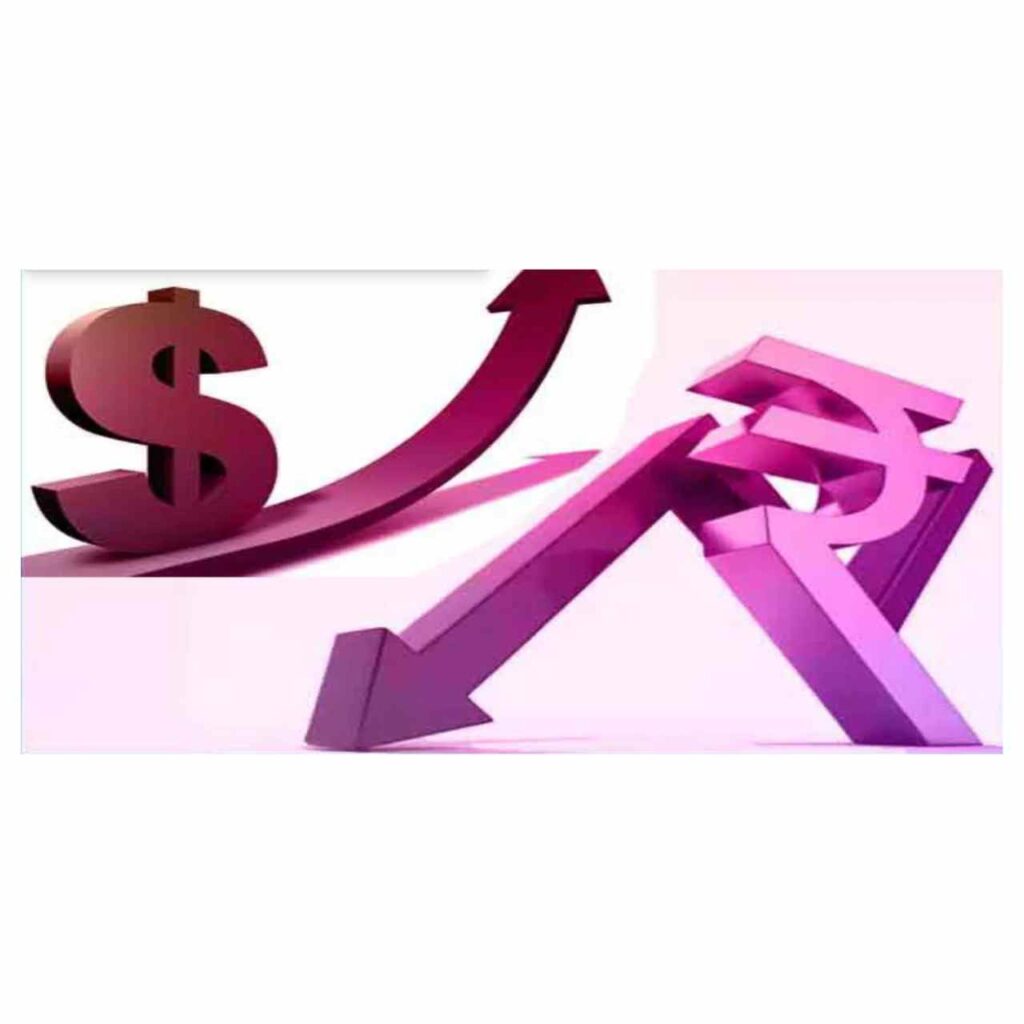The world is changing fast, and so is the value of money. The US dollar is rising, and India is feeling the heat. The worst part? No one is really talking about it. The media keeps us engaged with different controversies, political debates, and entertainment news. But behind the scenes, a financial crisis is slowly unfolding.
This is not just about numbers and global markets. The effects of a rising dollar are everywhere—in the food we eat, the fuel we use, the products we buy, and even our savings. It’s like a slow poison that seeps into our economy, making everything more expensive.
Why Is the Dollar Rising?
The US dollar is the world’s most powerful currency. Many global trades happen in dollars, and countries rely on it for buying essential goods. When the dollar strengthens, it means that other currencies, including the Indian rupee, weaken. This is happening due to multiple reasons:
- US Economic Strength: The US economy is performing well, attracting global investments.
- Interest Rates in the US: Higher interest rates in the US make people invest there, reducing demand for Indian rupees.
- Global Uncertainty: Wars, political instability, and economic crises make investors trust the dollar more.

How Does It Affect India?
The rising dollar is not just a concern for economists or business leaders. It directly impacts our daily lives in ways we might not notice immediately.
1. Costlier Imports = Expensive Products
India imports many essential items—oil, electronics, medicines, and even food products. A strong dollar makes these imports expensive, which means higher prices for us.
2. Higher Fuel Prices = Increased Transportation Costs
India buys crude oil in dollars. When the dollar rises, fuel prices go up, increasing transportation and production costs. This makes everything, from vegetables to clothes, more expensive.
3. Inflation Hits Every Household
With rising prices, families struggle to manage budgets. Groceries, electricity, gas, and daily essentials cost more, reducing savings and financial security.
4. Impact on Travel and Education
For those dreaming of studying abroad, the rising dollar means higher tuition fees and living expenses. Even international travel becomes more expensive, making vacations a luxury.
5. Businesses Suffer, Jobs Get Affected
Industries that depend on imports or global trade face losses. Some companies may cut costs by reducing jobs or salaries, impacting employment opportunities.
Why Is No One Talking About It?
Despite these serious effects, most people are unaware of the issue. The media often focuses on clickbait news—celebrity controversies, political fights, and entertainment gossip. While these stories trend, the rising dollar and its impact remain unnoticed.
It’s easy to distract people from real problems when they are engaged in viral debates. But ignoring economic realities can lead to bigger financial crises in the future.
What Can We Do?
While we can’t control global markets, we can make smarter financial decisions:
- Reduce Unnecessary Expenses: Cut down on luxury items and impulsive purchases.
- Invest Wisely: Consider options that protect against inflation, like gold or real estate.
- Support Local Businesses: Buying locally made products can reduce dependency on imports.
- Be Aware and Informed: Follow economic news, not just trending topics.
Final Thoughts
The rising dollar is silently shaping India’s financial future. While we argue over politics and social issues, our wallets feel the real pressure. It’s time we pay attention to the economy and understand how it affects our lives.
The question is—will we wake up before it’s too late?

















What do you think?
It is nice to know your opinion. Leave a comment.